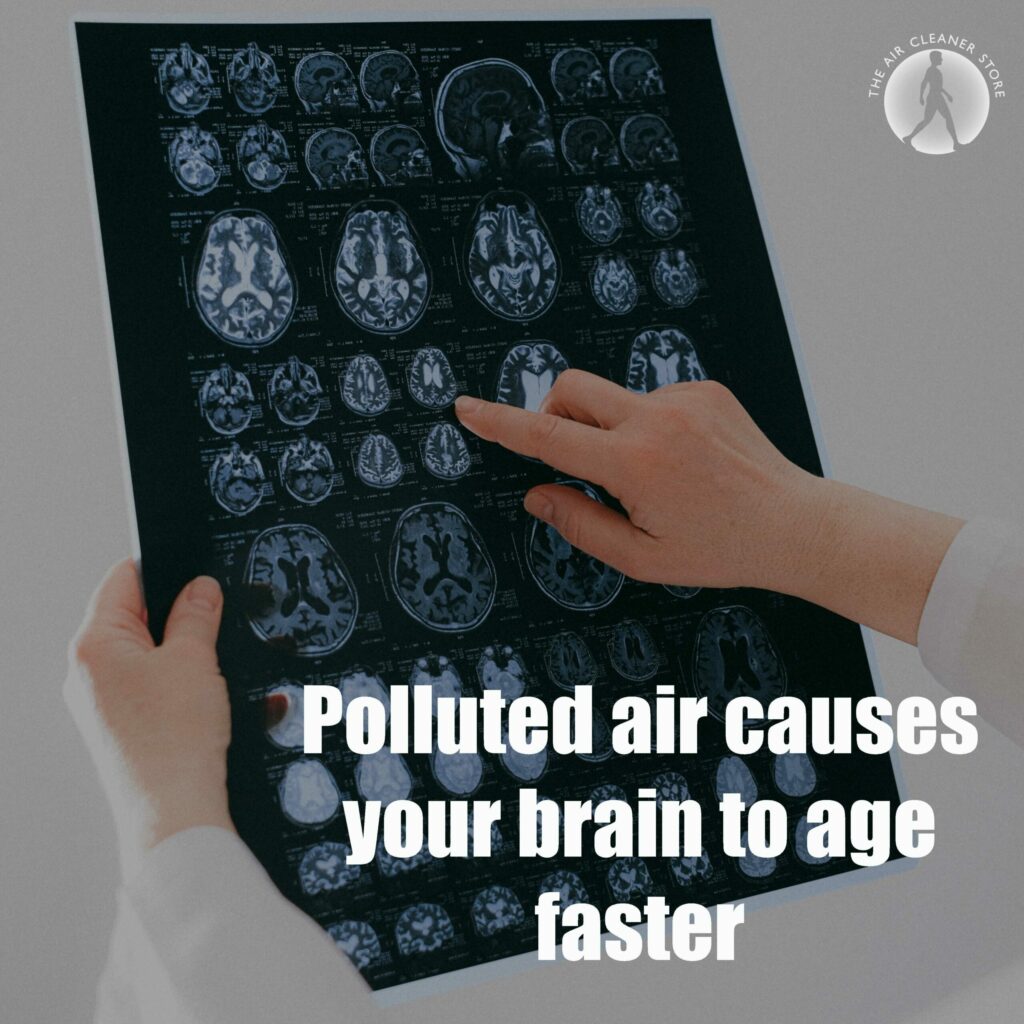Is it possible for polluted air to accelerate cognitive decline?
Air pollution has been related to accelerated brain aging in a growing number of studies. According to a study presented at the Gerontological Society of America’s annual meeting, excessive levels of air pollution prematurely age the brain. The research was carried out by a group of scientists from the Davis School of Gerontology at the University of Southern California.
The researchers studied the cognitive test scores of over 15,000 people over the age of 50. The subject’s test scores were analyzed in relation to air pollution concentration maps. Their findings revealed that the test subjects who lived in the most polluted locations aged three years faster than those who lived in places with the least pollution.
Another study conducted at Rush University Medical Center shows similar results. Their research found a relationship between exposure to fine particle air pollution and cognitive deterioration.
It’s important to note that Ultrafine particles (UFPs), the most common and hazardous particles, were not included in this study. While UFPs are probably the most damaging, they are also the hardest to quantify.
Here is a quick breakdown of what Ultrafine and Fine particles are:
- Fine particles (PM2.5): Particles with diameters ranging from 0.1 to 2.5 microns. PM2.5 particles make up around 9% of all airborne particles. A single human hair can be anywhere between 17 and 181 microns in diameter. These particles can lodge in lung tissue and cause respiratory disorders like asthma, bronchitis, and emphysema when inhaled. PM2.5 exposure has been associated with an increased risk of cardiovascular disorders, such as arrhythmic heartbeats and heart attacks, in addition to cognitive deterioration.
- Ultrafine particles (UFPs): Particles with a diameter smaller than 0.1 microns. This is the size of almost 90% of all airborne particles. UFPs are not only the most common of all airborne particles, but they are also the most harmful to your health. Ultrafine particles can easily be inhaled, deposited in the lungs, and absorbed straight into the bloodstream due to their small size. UFPs flow through your bloodstream and are able to pass through the blood-brain barrier reaching your brain and all of your critical organs.
PM2.5 and brain aging
Long-term exposure to higher-than-normal levels of PM2.5 has been linked to smaller-than-normal gray and white matter volumes in the frontal lobe. The frontal lobe is used for critical thinking, decision-making, and planning. Another study found that for every 3.5 micrograms of PM2.5 per cubic meter of air, white matter (nerve fibers that connect different brain regions) decreased by 6 cubic centimeters.
This research studied 3,000 women aged 65 to 79, with the caveat that none of the women had a medical history of cognitive deterioration. According to this investigation, elderly women who lived in places where particulate matter concentrations were greater than the EPA’s recommended level were 81 percent more likely to suffer a brain disease.
Another study that supports this claim was conducted between 2010 and 2014. It involved 31,000 Chinese individuals whose math and verbal test scores were correlated with air quality data. Even after accounting for natural cognitive decline that occurs with aging, the researchers discovered that cognitive decline was significantly higher in places where pollution was severe.
Ultrafine particles and brain aging
Ultrafine particulate matter is by far the least studied air contaminant. These particles can be as small as 0.003 microns, ten times smaller than the size of a virus. As more research on the impact of ultrafine particles on cognition emerges, it becomes evident that this is an issue that needs further attention. According to a study published in the Medical Journal Translational Psychiatry, there is also a link between ultrafine air pollution and neurological illnesses, including cognitive decline, memory impairments, and poor analytical thinking.
